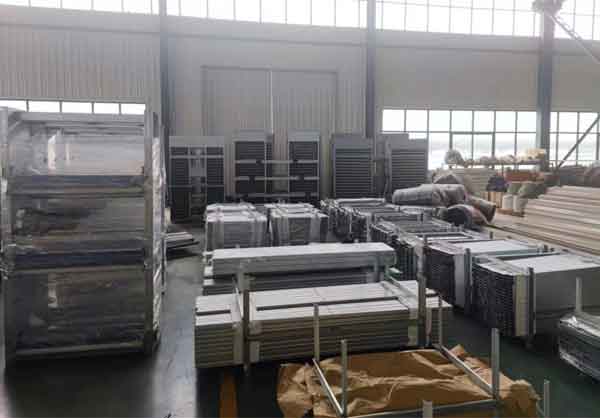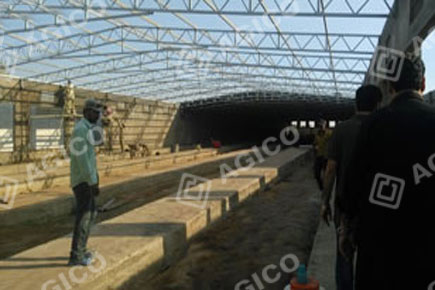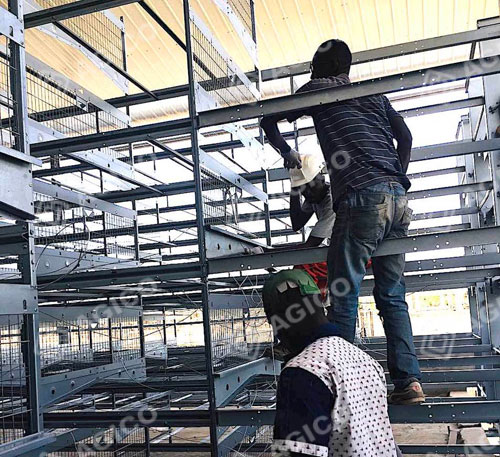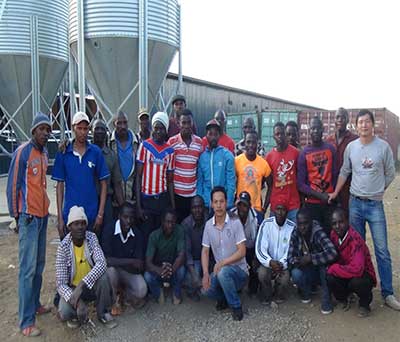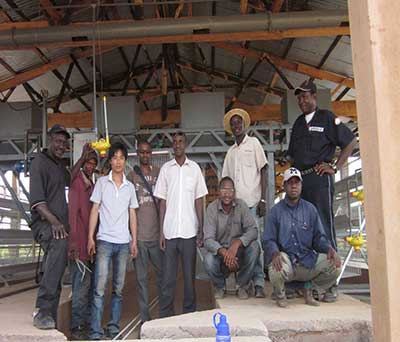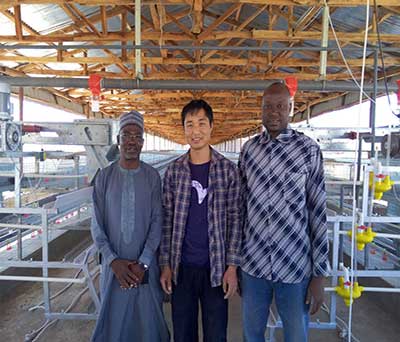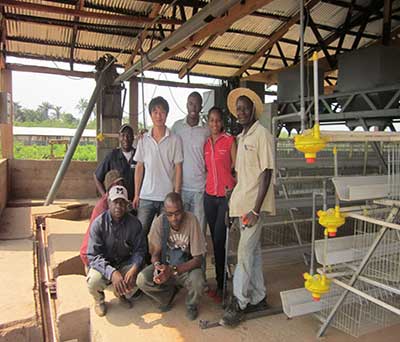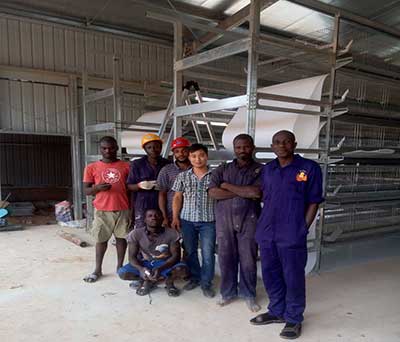Raising chickens for meat or eggs is a lucrative business that requires proper housing for the birds. While there are many types of chicken housing available, chicken cages have become increasingly popular among poultry farmers. Chicken cages provide a clean and organized environment for the birds, making it easier to maintain their health and well-being.here, we’ll take a closer look at everything you need to know about chicken cages for sale.
Types of Chicken Cages
There are three main types of chicken cages: battery cages, colony cages, and free-range cages. Battery cages are the most common type of chicken cage and are typically used in commercial egg production. These cages are designed to house multiple birds in a small space, with each bird having their own individual cage. Colony cages, on the other hand, are designed to house larger groups of birds, allowing them to move around freely. Free-range cages are similar to colony cages but are designed to allow the birds to roam freely outside the cage.
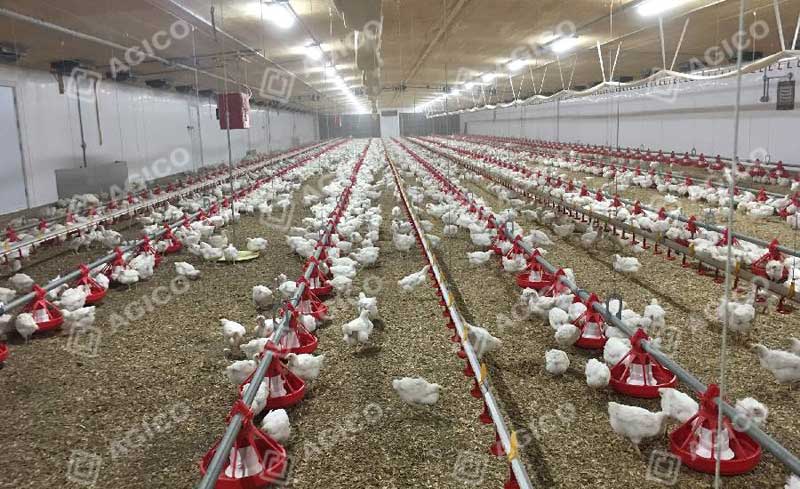
Factors to Consider When Buying Chicken Cages
When considering purchasing chicken cages for sale, there are several important factors to take into account to ensure that you are making an informed decision, such as the size of the cage, the type of cage, the number of birds to be housed, the quality of materials used, ease of cleaning, availability of spare parts, and price. It’s also important to consider the type of bird being housed, as different breeds have different requirements when it comes to housing. The following is the most common factors to consider when purchasing chicken cages for sale.
1. Cage Type and Design
There are several different types of chicken cages on the market, including battery cages, free-range cages, and aviary cages. Each type has its advantages and disadvantages, so it’s important to choose the type that is best suited for your specific needs. Additionally, the design of the cage can also play a role in bird health and productivity, so it’s important to consider factors such as ventilation, lighting, and ease of cleaning.
2. Cage Size
The size of the cage is also an important consideration. Chickens need adequate space to move around, stretch their wings, and engage in natural behaviors such as dust bathing. Overcrowding can lead to stress, disease, and reduced productivity. The size of the cage should be appropriate for the number and size of birds being housed.
3. Cage Quality
The quality of the cage is another important consideration. A well-made cage can last for many years, while a poorly made cage may need frequent repairs or replacement. The materials used to make the cage should be durable, rust-resistant, and easy to clean.
4. Cost
The cost of the chicken cage is also an important consideration. While it’s important to invest in a high-quality cage, it’s also important to stay within your budget. Consider the cost per bird when comparing different cage options.
5. Safety and Security
The safety and security of the birds should always be a top priority. The cage should be designed to keep predators out and to prevent the birds from escaping. Additionally, it’s important to choose a cage that is safe and easy for the farmer to access for feeding, watering, and cleaning.
6. Local Regulations
It’s also important to consider local regulations when purchasing chicken cages. Some areas have zoning restrictions or regulations regarding the size and type of cages that can be used. Be sure to check with local authorities before making a purchase.
By taking these factors into account when buying chicken cages, you can ensure that you are making an informed decision that is best for your birds, your budget, and your business.
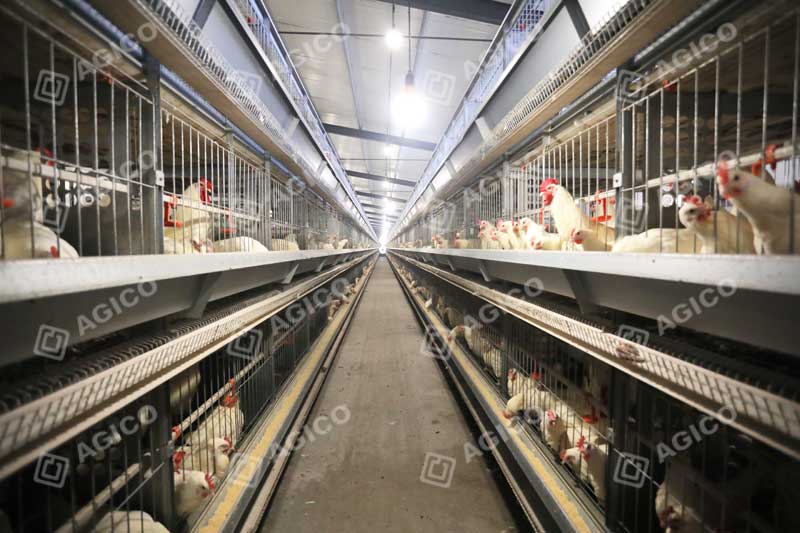
FAQs about Factors to Consider When Buying Chicken Cages
Q: What type of chicken cage is best for my needs?
A: The best type of chicken cage for your needs depends on several factors, including the number of birds you have, the size of your operation, and your management practices. Battery cages are ideal for large-scale egg production, while free-range cages are better suited for smaller-scale operations.
Q: How do I determine the appropriate cage size for my birds?
A: The appropriate cage size for your birds depends on the breed, size, and age of your birds, as well as the number of birds being housed. As a general rule, each bird should have at least 1.5 to 2 square feet of space in the cage.
Q: What materials should be used to make the chicken cage?
A: The materials used to make the chicken cage should be durable, rust-resistant, and easy to clean. Common materials include galvanized steel, aluminum, and PVC-coated wire.
Q: What should I look for in a high-quality chicken cage?
A: A high-quality chicken cage should be well-made, durable, and designed to promote bird health and productivity. Look for cages with sturdy construction, adequate ventilation, and easy access for cleaning and maintenance.
Q: How much does a chicken cage typically cost?
A: The cost of a chicken cage can vary widely depending on the type, size, and quality of the cage. As a general rule, expect to pay anywhere from $50 to $500 per cage.
Q: Are there any safety considerations when using chicken cages?
A: Yes, safety is a crucial consideration when using chicken cages. The cage should be designed to prevent predators from accessing the birds, and should be securely fastened to prevent escapes. Additionally, it’s important to monitor the birds for signs of stress or injury, and to maintain the cage in good condition to prevent accidents.
Q; What regulations should I be aware of when using chicken cages?
A: Regulations regarding the use of chicken cages can vary by location, so it’s important to check with local authorities before making a purchase. In some areas, there may be restrictions on the size or type of cage that can be used, or zoning regulations that govern the location of chicken operations.

